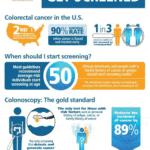“Go with your gut” is a commonly used phrase and for good reason. Gut health is key to overall health – including the brain. What takes place in your intestines not only affects your brain’s daily functions but also determines your risk for a number of neurological conditions. Understanding how closely the gut and brain are related is important and knowing what you can do to boost your brain health through your gut can make a significant impact on your daily life.
The “Second Brain”
Hidden in the walls of the digestive system, the “brain in your gut” is revolutionizing medicine’s understanding of the connection between digestion, mood, health and the way people think. This second brain, also known as the enteric nervous system (ENS), consists of two thin layers of more than 100 million nerve cells lining the gastrointestinal tract from esophagus to rectum.
Ever felt “butterflies” in your stomach when you were nervous or excited? That was most likely triggered by signals from the ENS. The main role of the second brain is to control digestion; this includes swallowing, the release of enzymes that break down food, the control of blood flow that helps nutrient absorption, and elimination. The ENS also regulates muscle function, immune cells, and hormones and manufactures an estimated eighty to ninety percent of serotonin (the “feel-good” neurotransmitter).
So, How Does This Affect Me?
Since the gut makes more serotonin than the brain, neurologists are realizing that this may be one reason antidepressants are often less effective in treating depression than proper dietary changes. Other chemicals manufactured in the gut, like GABA and Glutamate, are also critical for the nervous system and many neurological challenges – including anxiety, behavioral issues, depression and Alzheimer’s. The ENS may also trigger big emotional shifts (like anxiety and depression) experienced by people coping with irritable bowel syndrome (IBS) and bowel problems like constipation, diarrhea, bloating and upset stomach. Gastroenterologists, like the professionals at Northeast Digestive, act as counselors listening to the two brains “talk” to each other and finding ways to help them communicate.
Boost Your Brain Health
The most important factor related to the health of the ENS and therefore the brain is the food we eat. The good and bad news is we have total control of the food we put into our body. Changing the state of your brain and gut health is as simple as making the appropriate dietary changes. Below are some tips on how to boost your brain health through your gut.
- Probiotics. Probiotics are live bacteria and yeast that support good digestive health. Live-culture yogurt, kefir, kombucha tea, kimchi, sauerkraut and pickles are all good sources for probiotics.
- Balance. A diet high in fiber and protein and low in carbs and sugar keeps your gut bacteria balanced. Important nutrients for feeding your brain include omega-3 fats, monounsaturated fats, vitamin B12, zinc, magnesium, iron, choline, lycopene, vitamin E and carotenoids.
- Water. Hydrating with plenty of water is vital to intestinal health, but be sure the water doesn’t contain gut-busting chemicals like chlorine that can disrupt gut bacteria. Drink filtered water that removes chlorine and other contaminants.
- Dark Chocolate. It’s okay to indulge … in dark chocolate. Research has found that elderly individuals suffering mild cognitive impairment who consumed the highest-level of flavonols (one benefit from cocoa) showed heightened cognitive function. Cocoa also supports a healthy balance of gut flora and exhibits antioxidant properties.



